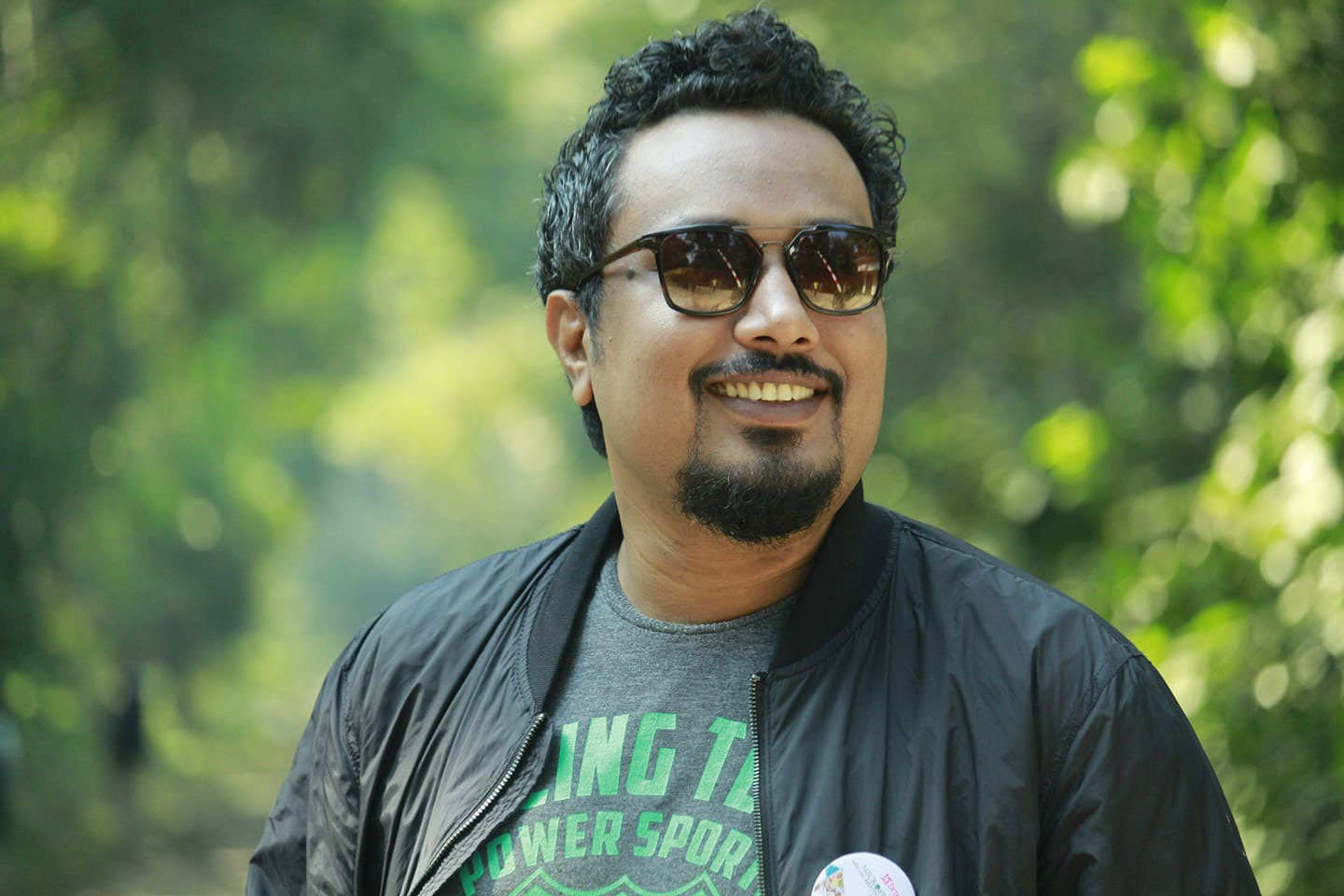
"This event helped my fellow students to internalize and act to end modern slavery and human trafficking. Many attendees were able to make links, observations and comparisons between the film and their own life, realizing their own power and responsibility to achieve that goal and change the world for the better."
— Maruf Hossain
Maruf Hossain is a student at East West University in Bangladesh and a member of World Merit Bangladesh. For the SIMA SDG Challenge, Maruf chose to screen the film NOBODY DIES HERE which explores labor rights abuses in a coal mine in Burundi. Through the film, he encouraged his audience to connect with Sustainable Development Goal (SDG) Number 8: Decent Work and Economic Growth.
Why did you choose the SIMA Academy film NOBODY DIES HERE?
We chose this film because it was understood that the level of the audience’s familiarity with the subject matter prior to the screening was quite good and we wanted to build on that.
We wanted to screen a film that will help our audience to connect with SDG 8, Decent Work and Economic Growth and to connect to the importance of access to decent work for all.
How did the screening meet your objectives for the overall event?
This film helped the audience to understand and connect with the importance of workplace safety, which is a huge issue in our city. They also realized that we need to work now to reduce the proportion of youth not in employment, education or training for a better future. Our objective was for the audience members to be engaged enough that they would commit to signing up for a similar event. In total we had 100 people that committed, so this was a great outcome.
Can you tell us if and how this event changed the audience’s awareness of the subject matter?
This screening of the film and the overall event helped the audience to internalize and to act immediately to end modern slavery and human trafficking and working towards elimination of the worst forms of child labour. Interestingly, many audience members were able to make links, observations and comparisons between the film and real life. This is important because the employment industry across Bangladesh can especially hazardous, particularly the child labour industry.
What were the main topics of discussion at the event?
The main topics of discussion were methods to educate and engage youth to successfully implement SDGs in Bangladesh. Special focus was given to SDG 8, Decent work and economic growth. One of the audience members reflected; “We all know we have some SDGs to achieve, and I thought it was the government and NGOs who were responsible to achieve those. Through this event, I have realized that as an individual, I also have some responsibility to implement those goals and I also realized that I have the power to achieve those goals and change the world for the better.”
Did the event inspire a campaign and/or new relationships between panelists, audience members or organizations?
Our event was held in partnership with Edward M. Kennedy Center (EMK Centre) and Sudoksho and we were honored by the presence of MD. Abu Daud Khan, MD & CEO, Enroute International Limited, Mr. Nahid Hasan Khan, Advisor, DSW and Head of CCC, East West University (EWU), Silvia Akter, Assistant Professor, DBA, EWU, Maruf Hossain, Divisional Manager, BRAC Microfinance and Sharmin Akter Shakila, Entrepreneurship Coordinator, Edward M. Kennedy Center. The audience was very keen to get connected with panelists and for their guidance. At the end of the event contact numbers of panelists were given along with a link to an e-learning course on SDGs for further action.
Please share a memorable moment during your event.
The most memorable moment was when one of the audience members said, “We need not to be working for non profit, or any volunteer group to contribute to SDGs always. Sensible changes in our daily habits can also count us in as an SDGs contributor. But often we can’t link our personal life with a global agenda. This event makes us realize and think about those linkages.”
Why do you believe film is a powerful tool for social change?
I believe that film is a powerful tool for social change because many individuals change their ideals and beliefs because of what they see in films. So many people see movies every day and the film industry is getting bigger and more influential. However, movies can affect society in both positive and negative ways. Films with positive content can encourage ideas and social commentary within communities. Film gives us the ability to form lasting human connections by letting us share our experiences with each other, as shown in this event with SIMA.
Overall, this was a great experience to share my views on SDGs and the role of youth in achieving those goals with some young and bright minds. EMK Center and Sudoksho have brought an e-learning course on the SDGs named “SDG for Youth: My Goal, My Responsibility”. The aim is to create a pool of social leaders and activists, who will make positive changes in the society and create awareness among the youth, which will ultimately engage youth to explore their aspirations related to SDGs implementation in Bangladesh.